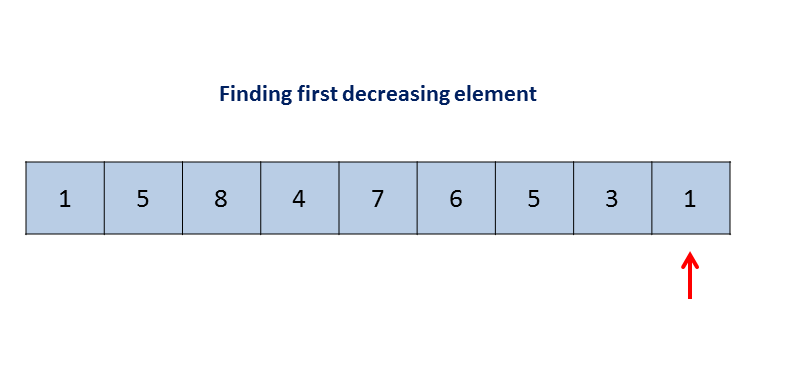【LeetCode】46. Permutations 解題報告
46. Permutations / Medium
Given an array nums of distinct integers, return all the possible permutations. You can return the answer in any order.
Example 1:
Input: nums = [1,2,3]
Output: [[1,2,3],[1,3,2],[2,1,3],[2,3,1],[3,1,2],[3,2,1]]
Example 2:
Input: nums = [0,1]
Output: [[0,1],[1,0]]
Example 3:
Input: nums = [1]
Output: [[1]]
Constraints:
- 1 <= nums.length <= 6
- -10 <= nums[i] <= 10
- All the integers of nums are unique.
Solution 1: C++ implementation of next_permutation
思路
C++ 內建一個函式叫 next_permutation,每次呼叫都會給回傳給定陣列的下一個排列。
面試時應該是無法使用這個函式,而 C++ 的 next_permutataion 實作過程如下動畫。

時間複雜度是 O(N・N!),因為排列有 N! 種,每次都必須用 O(N) 去找出下一個排列,所以總共是 O(N・N!)次。
最好的狀態是陣列中全都是相同的值,最壞的狀態是每一個值都不同。
效能
Complexity
- Time Complexity: O(N ・ N!), where N is the length of nums.
- Space Complexity: O(1), not containing return value.
LeetCode Result
- Runtime: 0 ms
- Memory Usage: 7.5 MB
- https://leetcode.com/submissions/detail/541337982/
Code
1 | class Solution { |
Solution 2: Bactracking
思路
比較直覺也比較容易實作的方式是用 Backtracking。
每次都將目前標記的位置(從第一個開始,程式中的 first),然後依序和後面所有的值都交換一次,接著進入下一個狀態。最 first+1 的位置開始往後做交換。

效能
Complexity
- Time Complexity: Better than O(N・N!) and Slower than O(N!). This is so-called k-permutations_of_n, or partial permutation.
- Space Complexity: O(1)
LeetCode Result
- Runtime: 4 ms
- Memory Usage: 7.6 MB
- https://leetcode.com/submissions/detail/730601040/
Code
1 | class Solution { |
